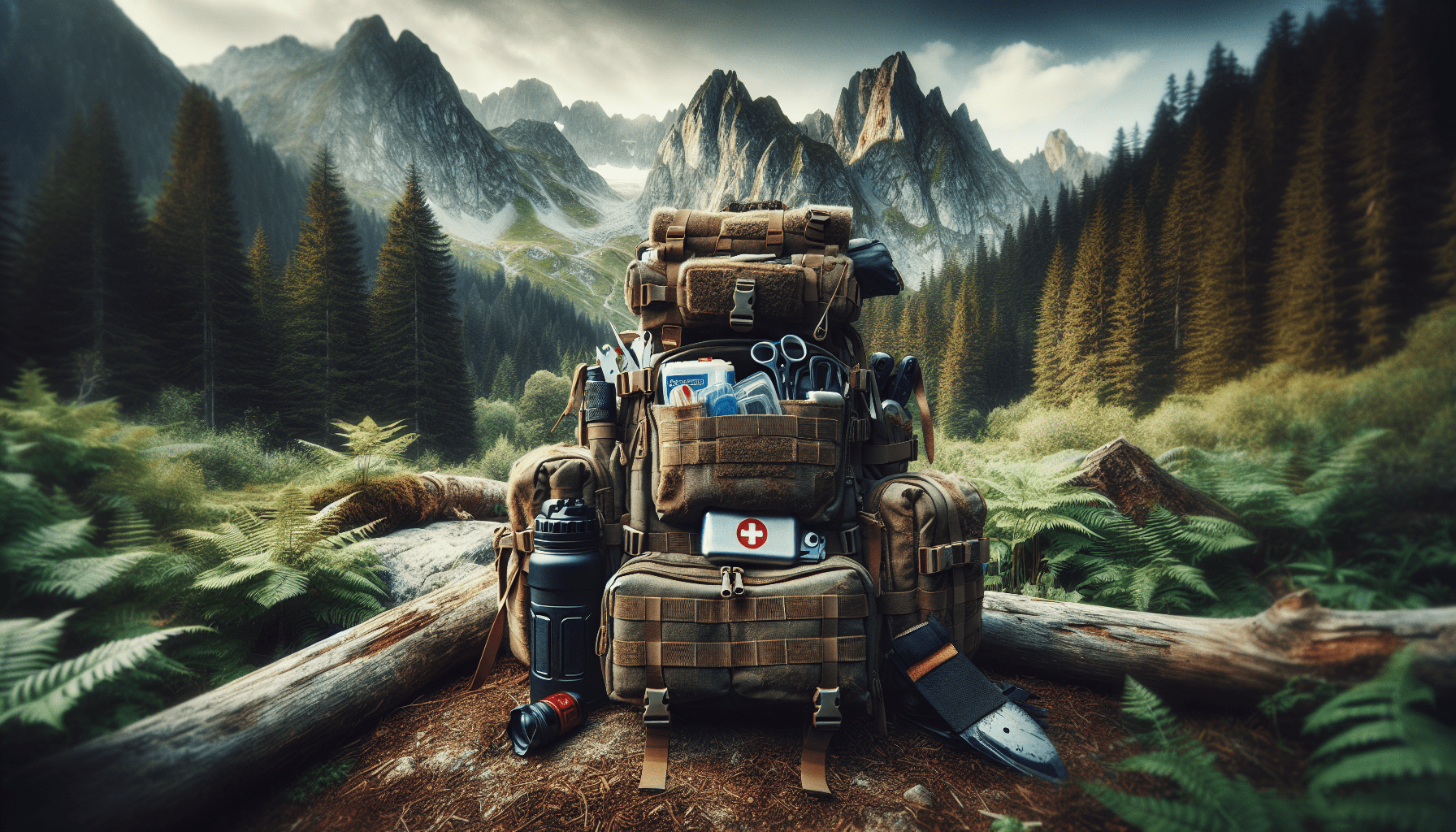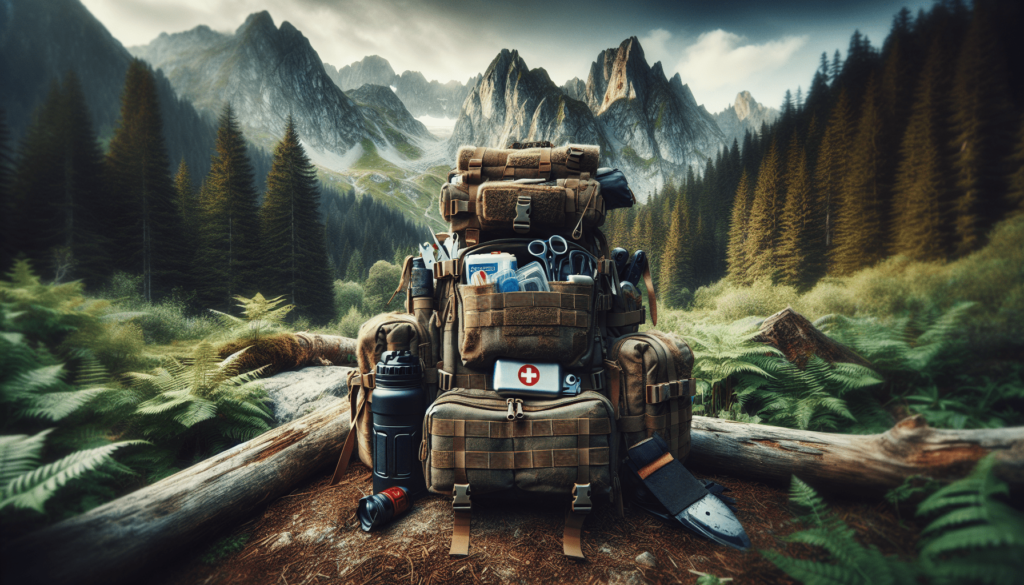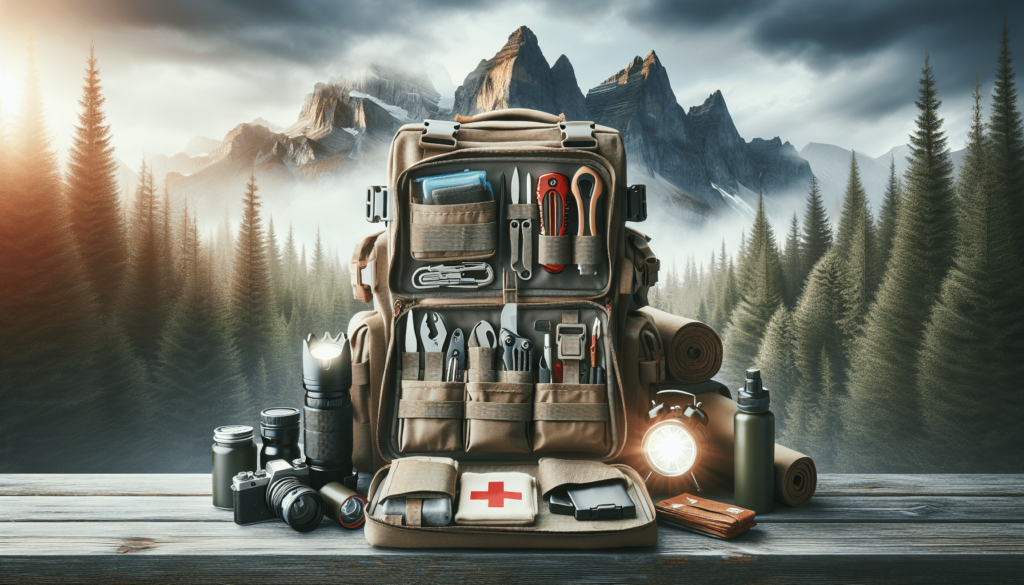
What Makes You A Prepper?
Have you ever found yourself daydreaming about a scenario where the power goes out, and you’re suddenly thrust into a world of self-reliance? Or perhaps you’ve wondered how you’d handle yourself in a natural disaster or economic collapse? If these thoughts have ever crossed your mind, you might be closer to being a prepper than you realize.
Defining a Prepper
So, what exactly is a prepper? The term “prepper” encompasses more than just someone hoarding canned goods and bottled water in a basement. At its core, a prepper is someone who plans and prepares for the potential disruptions of everyday life to ensure the safety and well-being of themselves and their loved ones.
Historical Context
The concept of being prepared isn’t new. Remember the fallout shelters of the Cold War era? Or go back even further and you’ll find pantry stocks as deep as a well in colonial homesteads. Being prepared was a way of life, not a quirky hobby.
Modern-Day Preppers
Today’s preppers come from all walks of life. They could be your next-door neighbor or your child’s teacher. What ties them together is a mindset focused on readiness, self-sufficiency, and resilience.
Why Do People Become Preppers?
The motivations to become a prepper are as varied as the people themselves. For some, it’s a natural extension of their upbringing. For others, it’s triggered by a specific event or a growing sense of instability in the world.
Personal Experiences
For instance, a person who has lived through a natural disaster, like Hurricane Katrina, might see the importance of being prepared firsthand. Memories of empty store shelves or the helpless feeling of awaiting aid can motivate someone to take measures into their own hands.
Societal Factors
Then there are the broader societal factors. Economic uncertainty, political instability, and climate change are all big motivators. When you hear about potential economic crashes or see burgeoning civil unrest, it can make you wonder what steps you’re taking to insulate yourself and your family from chaos.
The Prepper Mindset
Having the mindset of a prepper goes beyond just stockpiling supplies. It’s about cultivating a set of skills and fostering a mentality of problem-solving and self-reliance.
Self-Reliance
One core tenet of prepping is self-reliance. This means not depending solely on government aid or infrastructure. It’s empowering to know that, in the event of an emergency, you’ve got your bases covered.
Risk Management
Preppers are excellent at risk management. They’re always thinking a few steps ahead, considering various scenarios and the likelihood of their occurrence. It’s not about paranoia; it’s about being pragmatic.

Essential Prepper Skills
Being a prepper isn’t just about what you have; it’s also about what you know. The best supplies in the world won’t help much if you don’t have the skills to use them.
Basic Survival Skills
Think of basic survival skills like first aid, fire-making, and navigation. Knowing how to purify water, start a fire without matches, or provide first aid can make a huge difference in an emergency situation.
Gardening and Food Preservation
Growing your food and preserving it is another cornerstone of being a prepper. Gardening can be therapeutic and provides a steady food supply, while techniques like canning and dehydrating ensure nothing goes to waste.
Self-Defense
Whether it’s learning martial arts or how to handle a firearm responsibly, self-defense is a skill many preppers value. It’s all about protecting your family in situations where law enforcement might not be immediately available.
Prepping on a Budget
Contrary to popular belief, you don’t need a fortune to start prepping. There are numerous cost-effective ways to prepare for emergencies that won’t break the bank.
Planning and Prioritizing
Start by making a list of what you genuinely need. Prioritize items and skills based on the most likely scenarios you’ll face. It could be as simple as putting together a basic first aid kit or stocking up on non-perishable foods during sales.
DIY Projects
Many prepping projects don’t require professional expertise or expensive equipment. Simple DIY projects, like building a rainwater collection system or crafting a solar-powered battery charger, can be both cost-effective and rewarding.
Community and Networking
Despite the self-reliant nature of prepping, having a robust community and network can be equally important. Building relationships with other preppers can provide valuable advice, resources, and support.
Local Prepper Groups
Look for local prepper groups or online communities where you can share knowledge, experiences, and resources. Sometimes the best tips and tricks come from others who’ve been at it a bit longer.
Barter Systems
Imagine a situation where money loses its value. Having a network where you can barter goods and services can be a game-changer. Establishing relationships now can pave the way for future exchanges that benefit everyone involved.

Prepping for Different Scenarios
Not all emergencies are created equal. Different situations require different preparations, and understanding what you might face will help you prepare more effectively.
Natural Disasters
Depending on where you live, you might be more susceptible to hurricanes, earthquakes, floods, or wildfires. Each of these requires specific preparations, from evacuation plans to specific types of supplies like waterproof bags or fire extinguishers.
Example Table: Basic Natural Disaster Prepper Inventory
| Item | Purpose |
|---|---|
| Emergency Food Supply | Sustenance during recovery |
| Water Filtration System | Clean drinking water |
| First Aid Kit | Medical emergencies |
| Portable Radio | Information and updates |
| Fire Extinguisher | Managing small fires |
Economic Collapse
In the event of an economic downturn or collapse, having a stockpile of essential goods and learning skills that can be traded becomes crucial. This is where your garden and food preservation skills really come in handy.
Pandemic
If recent events have taught us anything, it’s the importance of being prepared for a global health crisis. Items like masks, sanitizers, and a stockpile of necessary medications can go a long way.
Ethical Considerations
There are some ethical aspects to prepping that often get overlooked. For instance, hoarding excessively can strain community resources. Sharing knowledge and helping others prepare can create a more resilient community overall.
Balance
Striking a balance between being prepared and being altruistic is crucial. Being a prepper does not mean you’re only out for yourself; it means you’re proactive in addressing your needs so you can also contribute positively to your community.
Long-term Thinking
Ethical prepping also involves considering the long-term implications of your actions. Sustainable practices like composting, rainwater harvesting, and renewable energy sources not only make you more self-reliant but also lessen your environmental impact.
Common Misconceptions
Prepping often comes with its own set of stereotypes, often misleading and sometimes quite humorous.
Stereotype of the “Doomsday Prepper”
The image of a paranoid individual with a tinfoil hat hoarding supplies for an apocalypse is far from the truth for most preppers. In reality, many preppers are pragmatic people who simply want to be ready for life’s uncertainties.
“I Don’t Have Time”
Another common misconception is that prepping takes a huge amount of time. In truth, small, consistent efforts can add up quickly. Spend a weekend learning a new skill or gradually add to your stockpile with each grocery run.
Getting Started
So, how do you start on this journey of becoming a prepper? It all begins with a plan.
Assess Your Needs
Think about your personal situation, your location, and the most likely risks you face. Are you in an earthquake-prone area? Is your region susceptible to severe weather? Identify your most pressing concerns first.
Educate Yourself
Knowledge is power. Books, online resources, and local prepper groups can provide invaluable information. The more you know, the better prepared you’ll be.
Start Small
Don’t feel overwhelmed. Even small actions can make a big difference. Begin with a basic emergency kit and gradually expand to include other supplies and skills.
Building a Survival Kit
A survival kit is a great starting point for any prepper. It’s something you can expand upon as you become more adept at prepping.
Essentials
At the very least, your survival kit should include:
- Water: At least one gallon per person per day, for at least three days.
- Food: Non-perishable items that are easy to prepare.
- First Aid Kit: Basic supplies to treat injuries.
- Lighting: Flashlights and extra batteries.
- Tools: Multi-tool, duct tape, and a manual can opener.
- Communication: A battery-powered or hand-crank radio.
Personal Touches
Don’t forget about personal items like medications, important documents, and even comfort items like a good book or games. Mental and emotional well-being is just as important as physical health in a crisis.
Maintenance and Review
Once you’ve got your supplies and skills in place, ongoing maintenance and review are essential. The world is constantly changing, and so should your preparedness plans.
Rotate Supplies
Non-perishable foods may have a longer shelf life, but they aren’t immortal. Regularly check expiration dates and rotate items to ensure freshness.
Update Plans
Review your emergency plans periodically. As your life circumstances change—new job, new home, new family members—your preparedness needs will evolve as well.
Final Thoughts
At the end of the day, being a prepper is about peace of mind. It’s knowing that you’ve taken steps to protect yourself and your loved ones from the uncertainties of life. It’s about blending age-old wisdom with modern knowledge and skills to create a safety net that catches you when the unexpected happens.
So, what makes you a prepper? It’s a blend of mindset, skills, community, and preparedness. The face of a prepper is diverse and dynamic, each person’s journey unique, yet united by a common goal: resilience in the face of adversity.
That’s where the true spirit of prepping lies—not in fear, but in empowerment.
